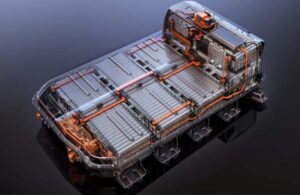The Bureau of Indian Standards (BIS) has set up some standardised parameters for the performance of lithium-ion batteries that are used in electric vehicles (EVs).
 A BIS official commented that this standard incorporates the test procedure for basic characteristics of performance, reliability and electrical functionality for the battery packs and system for either high power or high energy application.
A BIS official commented that this standard incorporates the test procedure for basic characteristics of performance, reliability and electrical functionality for the battery packs and system for either high power or high energy application.
“Two more standards related to batteries for various passenger and goods carrying vehicles a various passenger and goods carrying vehicles are also in the process of being formulated,” he added. Those will be keeping a view on the safety aspect of batteries for EVs.
The need for these standards arose after a spate of fires in two-wheeler EVs which also led to the loss of lives. Batteries for vehicles that fall under the L (Mopeds, Motorcycles, Motor Tricycles and Quadricycles), M (passenger vehicles having at least four wheels), and N (goods carrying vehicles having at least four wheels) will be covered under these safety standards.
It is the first time that BIS standards for the performance of EV batteries have been established. BIS has already published Indian Standards for AC Charging, DC Charging, and battery swapping.
This new BIS standard has been labeled IS 17855:2022. It has been harmonized with the International Organization for Standardization (ISO) 12405-4:2018.
BIS officials said that the Indian Standards have been formulated considering real-life scenarios for an electric vehicle such as the vehicle is in parking (battery is not used for an extended period), the battery system is being shipped (stored), operating battery at low and high temperature, among others.
While it is not mandatory for EV manufacturers to adopt these standards, it is desirable considering the center’s push toward the safety and reliability of this relatively nascent technology in the country.
The fires in EV two-wheelers had prompted the government to set up an inquiry into their causes. Earlier this year, the Roads Ministry asked the Centre for Fire, Explosive and Environment Safety (CFEES), a laboratory of the Defence Research and Development Organisation (DRDO), to investigate.
Transport Minister Nitin Gadkari had also said that the government will order companies to recall defective EVs and penalize them if they don’t do so on their own.
